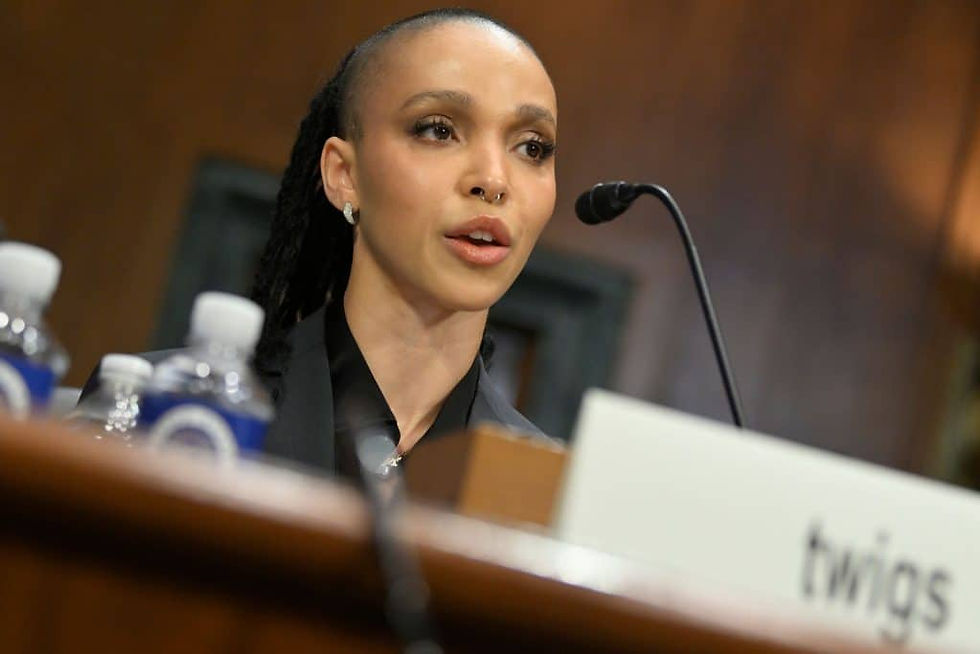AI and the Creative Industry: Collaboration or Competition?
- Résonner Team

- May 1, 2024
- 2 min read
Is it possible for the creative industry to thrive with moderated AI?

It seems like artificial intelligence has become the word of the decade. Often a buzzword either for or against technological advancement, AI has disrupted almost every professional industry – but it seems to sting particularly hard within the creative industries. Creative work is already undervalued, and the industry is becoming more saturated. From film production to musicianship to artistry, many creatives are feeling threatened by popular AI programs such as ChatGPT, Mindjourney, and Soundraw. While the response has been overwhelmingly negative – just look at these signs from the Writers Guild of America Strike – some creatives are embracing AI the best they can.
During a hearing with the US Senate Judiciary Subcommittee on Intellectual Property, FKA Twigs spoke in support of the No Fakes Act.

The proposed bill would allow anyone to sue entities or other individuals for creating digital replicas of them without their consent. This, of course, would mean an end to the thousands of fan-made AI-generated songs and potentially harmful deepfake videos. However, Twigs is not completely against AI – she shared that she is working on a digital clone of herself, which she referred to as “AI Twigs.” She said that when used correctly, AI can be of benefit to artists to focus on their craft while a moderated digital “version” of themselves handles social or public-facing engagements. “Often being a music artist, or any artist in this day and age, requires a lot of press and a lot of promo, a lot of one-liners,” she said (per BBC). "So it means if it's something simple that doesn't really require my heart, I can do a one-liner and give it to people to promote a piece of work and, you know, it's harmless but ultimately I can spend more time making something that's really meaningful for my fans."
Twigs’ sentiment resonates with many fellow artists – AI, when regulated, can be of great benefit in streamlining the often tedious task of pursuing creativity as a career. As a creative, the tasks being automated with AI are often more mundane responsibilities – such as emails, pitch drafts, digital flyers, or promotional materials. However, there is still the concern of larger creative agencies using AI to fill the tasks previously done by assistants, secretaries, or entire art departments. It is becoming more lucrative to study specific art disciplines to appeal more to employers – there is even a new “AI for Creativity and Leadership” course offered at Parsons School of Design.
So, what’s next? AI isn’t going anywhere – the best creatives can do is embrace it as part of their skill set. Understanding AI in the creative industry means recognizing its potential for collaboration and as well as competition. Whether that means utilizing it to create first drafts of new content strategy (for the less social media-inclined folks) or as a starting point for a new art proposal. Regulating AI is indeed a serious issue, so instead of condemning the technology altogether, we should be holding the entities upholding its misuse.





Comments